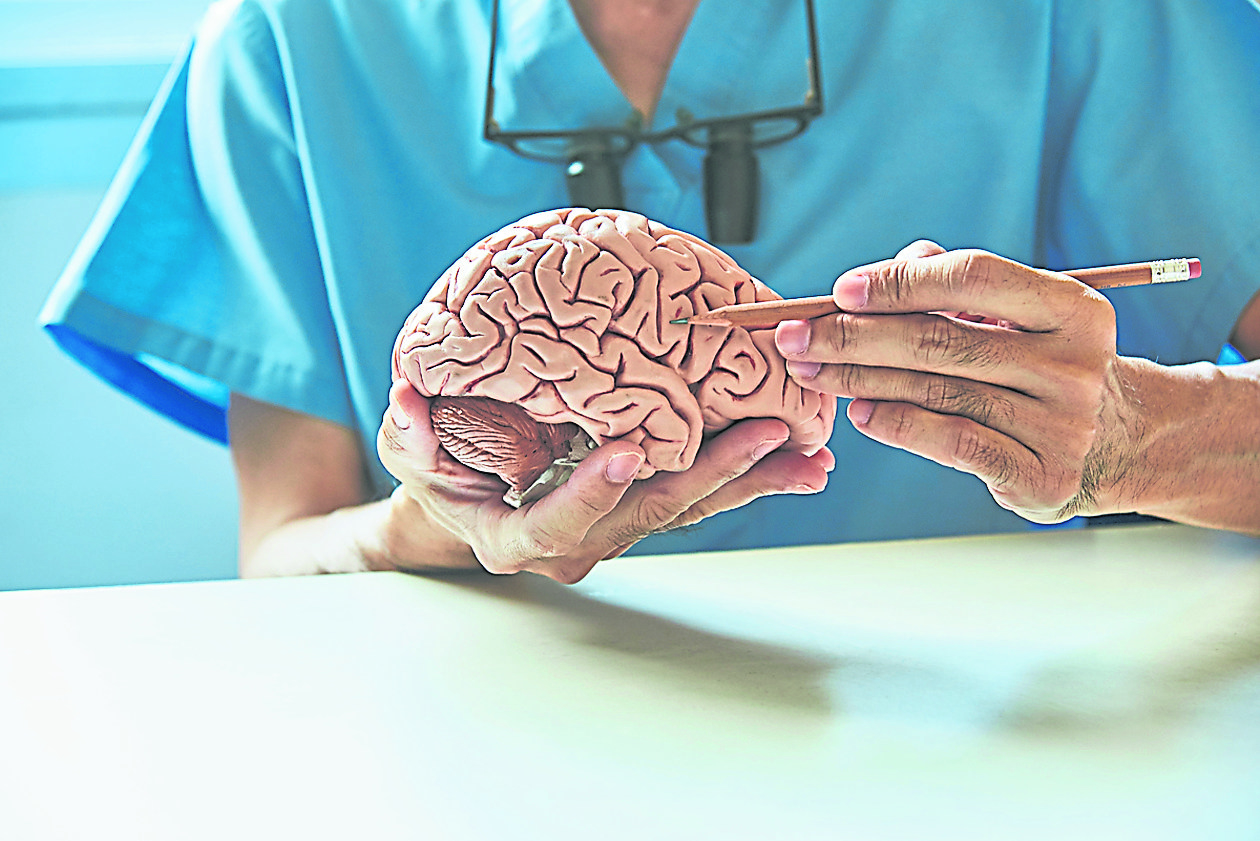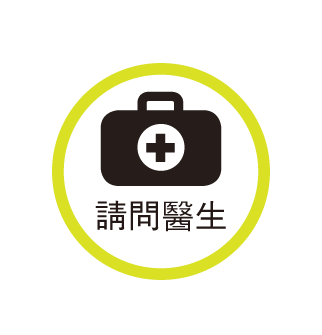[Local Medical]Seize the golden period to treat aphasia so that stroke patients can regain their communication skills
[ad_1]
Written by ◆Chen Xiaoquan and compiled by ◆Liang Yingxiu
The main cause of aphasia is stroke, with 25% to 40% of stroke patients developing aphasia.
However, aphasia can also be caused by damage to the brain or brain disease, including severe injuries from brain trauma, brain tumors, brain infections, and neurological disorders.
Fairrus
(Fairus Mukhtar)
(Kuala Lumpur News) Aphasia is a language disorder in which a person loses one or more abilities to understand, communicate in language, or read and write. However, the intelligence of a person with aphasia is not affected and they can still think and observe their surroundings.
25% to 40% of stroke patients are aphasic
Cheras Rehabilitation Hospital speech therapist Fairus Mukhtar pointed out that the main cause of aphasia is stroke. However, aphasia can also be caused by brain damage or brain diseases, including brain trauma, brain tumors, brain Serious damage from infections and neurological disease.
Aphasia is a complex language disorder, he said. This is because the types of aphasia are classified according to the location of the injury or damage in the brain, so the impact of aphasia on each person differs from person to person. Aphasia is generally divided into 3 types:
Type 1: Receptive Aphasia
Patients with this type of aphasia can hear what the other person is saying, but cannot understand what they mean. In severe cases, they can hear it in another language. Although this type of patient can answer questions fluently, the patient does not know the meaning of the words, and even uses the wrong words during the speech without being noticed.
This type of patient can receive information based on the situation, the other person’s tone of voice, facial expressions or gestures, but the information and sounds they understand are messy. People with mild symptoms can understand short conversations, but once faced with longer information, it is difficult for patients to fully understand even if they put together short sentences.
Type 2: Expressive Aphasia
People with this type of aphasia can hear and understand each other’s messages, but have difficulty choosing the right words to express them. Patients in this category are confused by words in the same category, such as “seat” and “table,” or may be confused by words that sound similar, such as “tube” and “jar.”
Moderate or severe patients will use some keywords to help them express what they want to say, such as “in”, “right” or “good”. For example, “My rice is ‘in’ and I want to eat.” When patients become aware of these incomplete words, they may become easily frustrated and sad. In addition, these patients also have difficulty understanding complex information.
Type 3: Mixed or Global Aphasia
This type is a mixture of Type 1 and Type 2 aphasia and is the most severe type of aphasia. Patients with this type may have lost the ability to understand and rarely speak.
“Twenty-five to 40 percent of stroke patients develop aphasia.
Aphasia often occurs in adults,
15% of adults under the age of 65 have aphasia.
The number of patients aged 85 and above increased by 43%.
However, this disease can occur in all ages, races, nationalities, and genders.
This depends on the individual’s health conditions, such as diabetes, high blood pressure, heart disease, etc. “
The first 6 months of treatment are the golden period
He said medical staff will use formal and informal screening methods to assess patients’ language skills. The informal screening method is a consultation. Medical staff will use the consultation to understand the patient’s physical condition, and then conduct a formal screening for the patient to assess which type of aphasia the patient has.
“The first 6 months is the golden period for the treatment of aphasia, so early diagnosis is extremely important, because the earlier the treatment is received, the faster the recovery progress will be. So as long as we know what type of aphasia the patient has, we can do it for the patient. Come up with targeted treatment plans.”

Family support speeds recovery
Body movement writing helps communication
Speech therapy can restore at least 60% of aphasia patients, and a few patients can fully recover. Whether the patient can fully recover depends on the degree of brain damage after the stroke. Most stroke patients take longer to recover.
Fairrus pointed out that in addition, it also depends on the location and extent of the patient’s brain damage. The greater the extent of the damage, the more severe the aphasia will be. The age of the patient also needs to be considered. The older the patient, the slower the recovery progress will be.
Encourage patients to receive treatment every day
“Of course, patients need to actively complete the treatment. The general treatment course is 3 to 6 months. Patients with mild aphasia can return to normal life after completing the treatment. Therefore, he encourages patients to receive treatment every day and promotes rapid recovery by motivating patients. .”
She said that the support of family members is also an important part. Strong support from family members can allow patients to show their positive side and speed up the recovery process. Some patients’ family members want to help the patient through supplements or dietary therapy, but for him, it is best to receive the entire speech therapy course first, and it is best to consult a relevant specialist or nutritionist before taking supplements.
She pointed out that although there is still no relevant official association in Malaysia, there is a support group on Facebook to help people with aphasia. This group is called ‘AIM Aphasia in Malaysia’ and the website is www.facebook.com/AphasiaInMalaysia/. The purpose is to raise public awareness of aphasia. This group is very active and provides a lot of relevant information. It holds online activities, communicates with patients or caregivers, shares case stories, and also raises funds for patients with aphasia. This group is not only open to people with aphasia, but stroke patients and their families are also welcome to participate.
Use short sentences and speak slower
Families and friends can help people with aphasia in some ways:
1.Reduce or eliminate noise or find a quiet place to talk to the patient. For example, turn off the TV or radio;
2.Get the patient’s attention before speaking and make eye contact with the patient when communicating;
3.Communicate in an adult way rather than a childish way;
4.Family and friends can help people with aphasia understand information by, for example, providing only one message at a time, giving the person enough time for them to understand what you are saying, using short sentences when talking to the person, speaking slowly, using body movements and Use facial expressions to help patients understand information, use writing and drawing to express what you are saying, and use true or false questions instead of open-ended questions, such as “Would you like a cup of coffee?” instead of “What would you like to drink?”
“We can also use some methods to help patients with aphasia convey information, such as giving patients enough time to express their feelings when communicating, and also encouraging patients to use body movements, writing or drawing to help them communicate.”
“We also need to observe the patient’s expression and understand their facial expressions. If the patient feels frustrated during the conversation, stop and understand and relieve the emotion before continuing. During the communication process, we also need to wait patiently While the patient answers questions, you may want to talk more about familiar topics or preferences with the patient.”

4 myths about aphasia
Question 1. Is aphasia a psychological or psychiatric disease?
Answer 1.Aphasia is not a psychological or psychiatric disease. It is a disease in which one or more language communication mechanisms cannot function normally due to brain damage.
Question 2. Can aphasia affect memory and intelligence?
Answer 2.People with aphasia still have their memories and intelligence, but they can’t share it with others.
Question 3. Is stuttering caused by aphasia?
Answer 3.Stuttering is another language disorder, but it is not caused by aphasia.
Question 4. Most adults suffer from aphasia, but children don’t suffer from it?
Answer 4. Aphasia is acquired, not congenital. As mentioned before, most aphasia is caused after a stroke. Although the risk of stroke in children is low, some accidents cause brain damage to children and result in aphasia. There was a 5-year-old child who suffered from aphasia after being involved in a car accident. After receiving speech therapy, his life was normal.
[ad_2]
Source link

![[Love Wants Sexual Happiness Series 358]Find the culprit and overcome psychogenic erectile dysfunction. Don’t let pressure affect your sexual happiness.](https://chinathenews.com/wp-content/uploads/2024/04/171111-780x420.jpg)

![[Wanqingyi Care]My health, my rights, customized medical methods in the last stage of life](https://chinathenews.com/wp-content/uploads/2024/04/ZZ1-100-780x420.jpg)
![[Kidney Transplantation Special Topic]The survival rate of transplanted kidneys is high without dialysis treatment three times a week](https://chinathenews.com/wp-content/uploads/2024/04/1311-780x420.jpg)



